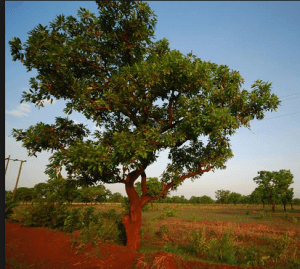Ghana government to plant 10 million trees to increase climate resilience
 The Government has employed nearly 20,000 people to plant 10 million trees across the country to increase climate resilience towards achieving the sustainable development agenda.
The Government has employed nearly 20,000 people to plant 10 million trees across the country to increase climate resilience towards achieving the sustainable development agenda.
Professor Kwabena Frimpong-Boateng, the Minister of Environment, Science, Technology and Innovation, who announced this at the opening of a high-level session of the Africa Climate Week (ACW) in Accra on Wednesday, said the tree planting exercise was part of the many programmes being pursued by the Government to mitigate the negative effects of climate change.
He said the ACW would help stakeholders in the public and private sectors to firm up actions for securing international financing to complement efforts by developing countries to combat debilitating effects of climate change.
“Ghana is convinced that its pursuit of climate tangible development can unlock real investment opportunities for the greater good for its sustainable development agenda,” Prof. Frimpong-Boateng said.
The five-day event is on the theme: “Climate Action in Africa: A Race We Can Win,” organised by the United Nations Framework Convention on Climate Change (UNFCCC) in collaboration with the Government of Ghana and United Nations Development Progamme (UNDP).
It brought together diverse actors from the public and private sectors across the globe.
Prof. Frimpong-Boateng said investing in climate actions had high direct development benefits and strong climate objectives, which had led to an annual emission reduction of two million tonnes of greenhouse gases.
Currently the nation is implementing climate change programmes aimed at promoting renewable energy, lowering deforestation and forest degradation, supporting the adaptation of clean cooking, pursuing low carbon electricity supply, building resilience at the savanna dry land and investing in sea defence walls.
Beyond those investments, Prof. Frimpong-Boateng said government was vigorously investing in green rural industrialisation through the One-District, One Factory, access to water for vulnerable smallholder farmers under the One-Village, One Dam programme and agriculture production through Planting for Food and Jobs.
He said climate change was the biggest challenge facing the globe, which affected every community, nation and citizen.
He said climate change negatively affected fresh water sources for many people and threatened food security as rising temperatures and prolonged draughts rendered fertile areas for cultivation of crops and grazing of livestock unproductive.
It is also endangering the lives of half of the world’s population living in coastal cities due to rising sea levels, causing calamities and destroying infrastructure, as well as vital ecosystems such as forestry and coral reef.
Prof. Frimpong-Boateng said in Ghana, the impact of climate change was affecting the drivers of the economy such as agriculture, industry, energy and infrastructure.
For instance, farmers are unable to predict rainfall patterns, rainfall become erratic at the northern savanna zone, dry season is longer and intense while water bodies dry up soon after the rainy season because of high temperatures.
The Minister said the country’s focus on climate change, over the past decade, was on establishing an enabling policy framework for the implementation of the Ghana Nationally Determined Contributions (NDCs).
The nation, therefore, ratified the Paris Climate Agreement in 2016 and started implementing some of the actions in the NDCs and now focused on scaling up the implementation of the climate actions.
The ACW would aid in implementing the priority actions outlined in the NDCs and meet targets of the Paris Climate Agreements.
Source: GNA
